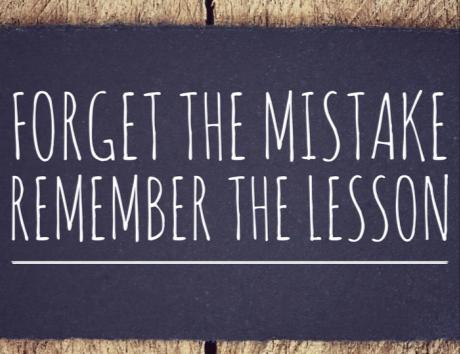10 Resume Mistakes To Avoid: The Complete Guide
Your resume is the most important part of a job application – you can’t afford costly mistakes like irrelevant or outdated information, grammatical errors, or poor formatting. It’s possible for any professional to make these resume mistakes, but they have a damaging impact. This blog post discusses the most common mistakes made on a resume and gives actionable strategies on how to avoid them and create a bullet-proof resume.

Lack of personalization
Too many job seekers adopt a “one size fits all” mentality and believe that the perfect resume can be sent to every single job posting they apply for. Tailoring each resume you send off is vital. Personalize your resume to reflect the role and company you’re targeting, including:
- Mentioning the company in your summary
- Using the job title the job ad specifies
- Listing the skills required in the job post
- Using a tone that aligns with company culture
Hiring managers see hundreds of resumes every week, so a generic document won’t grab their attention. Further, it shows you didn’t research the job and company thoroughly. For example, your highly formal resume might turn off a casual company.
Including irrelevant information
Listing irrelevant information is one of the most common resume mistakes. It’s as simple as listing a skill that isn’t in the job ad, but even a mistake that small can distract recruiters and take up valuable space.
Ensure you don’t include:
- Outdated skills or experiences
- Too much personal information
- Unrelated hobbies and interests
- Work experience that isn’t related to the role
- Volunteer work that doesn’t showcase a transferable skill
If you’re ever in doubt, double-check the job posting for the required experience, skills, and education. Try to align your resume as closely as possible with the job description for the best fit.
Poor formatting and layout
A messy-looking resume is hard to read and nearly impossible to scan quickly, which is common for recruiters who must process countless documents per day. These cluttered, awkward documents could even distract hiring managers from your qualifications.
Choose a clean resume template with even spacing and healthy amounts of white space. Your resume should be well-structured and consistent, whether it’s a formal resume or a modern, creative resume.
It should also flow in a logical order. For instance, most resumes should follow the usual reverse-chronological format, starting with work experience and then continuing into education.
“Try to align your resume as closely as possible with the job description for the best fit.”
Omitting key details
You have the skills to succeed in your dream job, but if you don’t describe them correctly, the recruiter will never know.
Take time to consider your relevant skills, experience, and education. You may overlook part-time job history or volunteer work, when this experience may directly relate to the job you’re targeting. For example, a teacher’s assistant should mention past volunteer tutoring work.
We recommend making a master list of your professional experience, including work history, skills, education, volunteer work, and projects. When you’re ready to apply for a job, review this list to find important, relevant qualifications.
Grammatical errors and typos
Grammar issues and typos are critical resume mistakes to avoid, but they happen all the time. Spelling mistakes give a bad first impression and make you look unprofessional. Spelling errors also determine whether or not an applicant tracking system finds your resume – if you spelled your job title “Project Manger” instead of “Project Manager,” an ATS won’t pull up your application.
Always proofread your resume and run it through a grammar-checking tool. It’s also worth asking a friend or colleague to read it with a fresh pair of eyes. They might also check something the spell-check software missed.
Faking or exaggerating skills and experiences
It’s tempting to lie on your resume, but it’s not a good idea. Even small exaggerations can be disastrous, leading to:
- Damaged professional reputations
- Strained relationships with colleagues and companies
- Work you aren’t qualified for and poor performance
- Legal complications
- Losing your new job
Honesty is the best policy, so ensure you’re open about your abilities and limitations. If you only have basic French language skills, don’t say you’re advanced or fluent. Rely on your strong skills and competencies and display them confidently. You want to land the job you’re qualified for and secure a comfortable future.
Building a resume that’s too long or too short
An overly long resume can be overwhelming and detract from your qualifications, especially because hiring managers only spend a few seconds scanning each resume. They won’t be able to absorb any useful information when you provide a lengthy, several-page resume.
On the other hand, a resume that’s too short won’t provide enough value and recruiters will be left wondering what your qualifications are.
Keep your resume mid-length, with two to three work experience entries, a short education section, and five to 10 skills. For more in-depth tips, browse our collection of resume articles.
Being vague about your skills and experience
Listing out your work experience like a to-do list won’t impress anyone. Lining up your previous work responsibilities without any metrics or personality makes you blend into the crowd.
Quantify your achievements, highlight specific actions, and discuss the positive outcomes you’ve had. Listing “Increased lead generation by 25%” tells the recruiter much more about you than “Handled lead generation.”
For actionable samples of quantified achievements, check out our resume examples.
Submitting an outdated resume
Has it been a little while since you were job hunting? Your resume may be outdated and it’s definitely not a good idea to send it in unedited.
As you grow in your career, it’s good to regularly update your resume, adding your current work, new achievements, and any additional certifications, skills, and licenses you have.
You might be the perfect fit for a position, but if the hiring manager only has five-year-old data to go off, they’ll never know you’re the ideal candidate.
Expert Tip:
Using unprofessional language and tone
Many professionals fall short when choosing the right tone for their resume. Using job titles like “Sales Rockstar” isn’t only unprofessional, but it’s also not ATS-friendly and doesn’t tell the recruiter your real specialties.
Some job seekers also fall into the trap of trying to sound clever and confident and end up sounding arrogant.
Aim to sound professional, yet not overly technical and formal. Try to match the tone of the company you’re applying to and keep things understandable and conversational. However, always keep in mind that this is a business document and shouldn’t be too slangy or casual.
Confidently avoid common resume mistakes and stand out from the crowd
These common resume mistakes happen to everyone, but that doesn’t mean you can’t avoid them entirely and build a resume that shines. Keep this guide handy every time you update your resume or send in an application so you can use it as a checklist.
Remember our top tips:
- Use resume templates to avoid poor formatting
- Quantify your achievements to show real value
- Double-check for typos and grammatical issues
- Use professional language and tone
- Include your most relevant accomplishments and skills
Let’s put these tips to use! Head over to CVwizard’s Resume Builder to create a streamlined, professional resume in just a few minutes.
Make an impression with your resume
Create and download a professional resume quickly and easily



